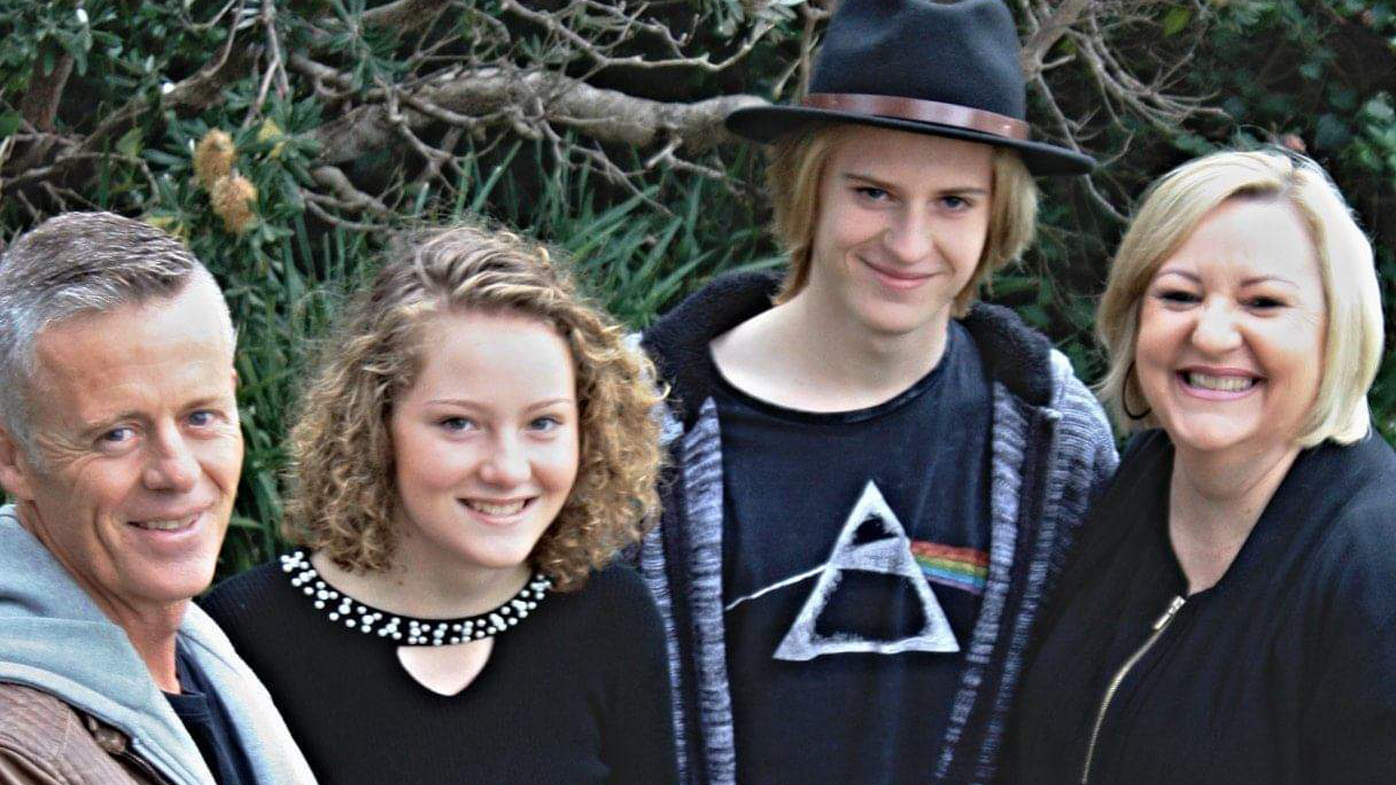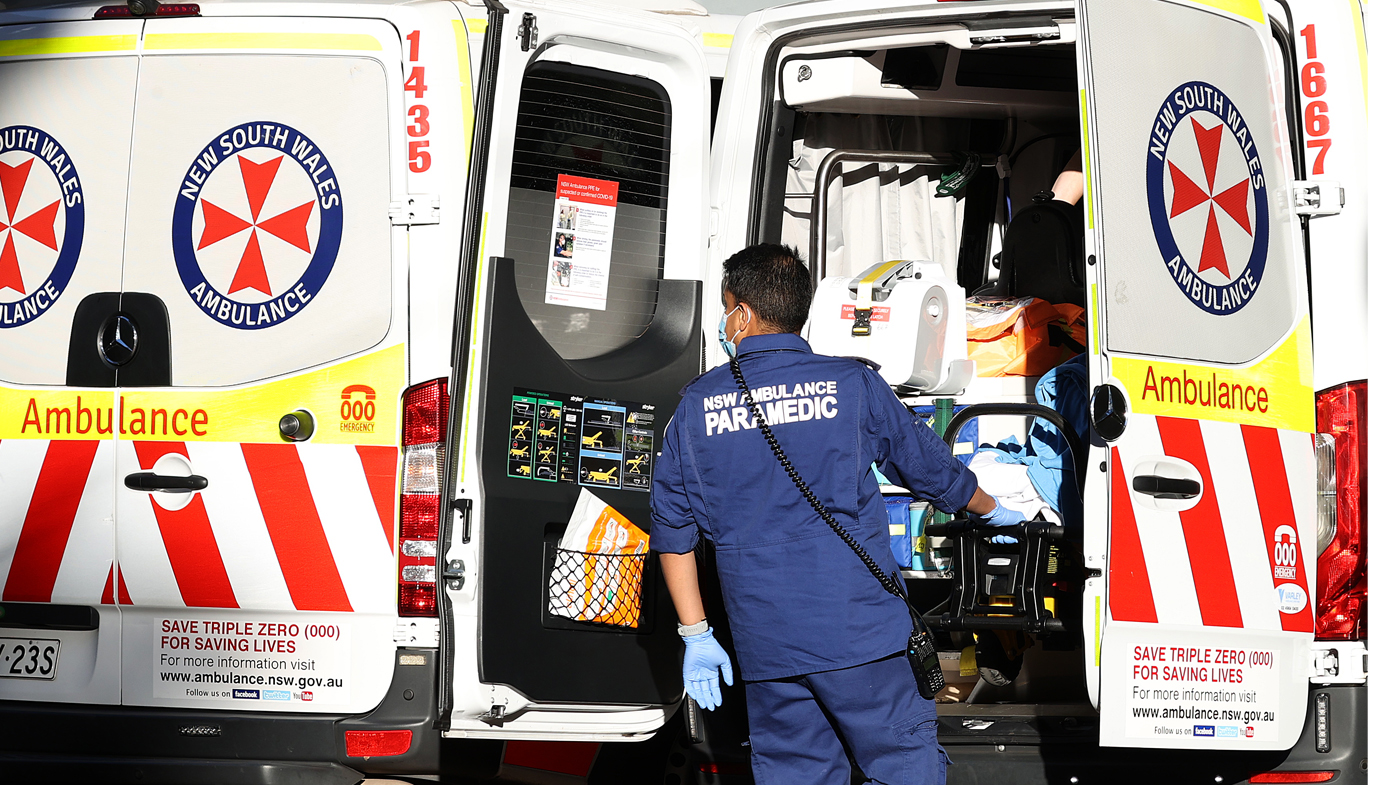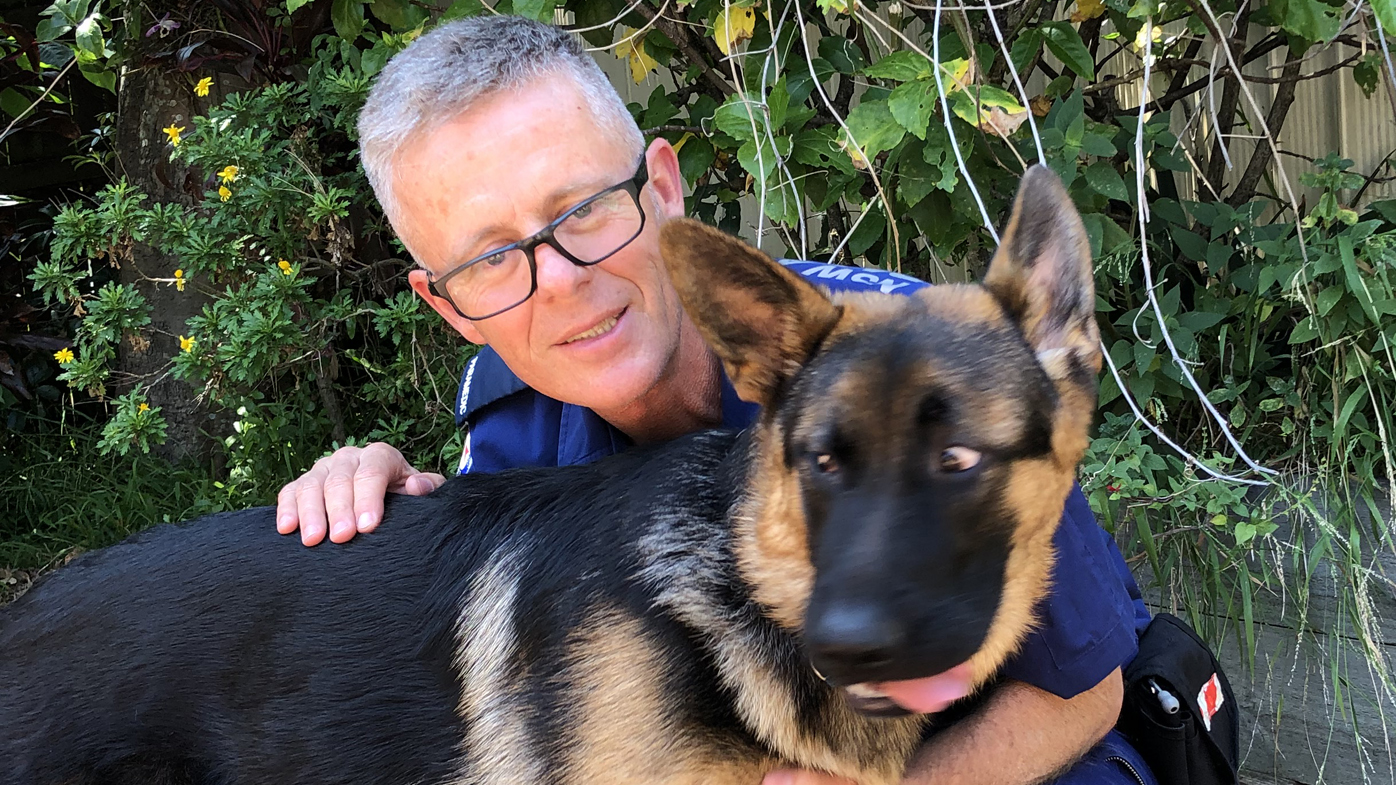After almost 16 years on the road as a NSW paramedic, Mitch Pettet is no stranger to the pressures of the job and has dealt with his fair share of stressful situations. However as his holidays came to an end last month, the experienced first responder was scared to return to work.
Like many others, Mr Pettet's family travel plans were ruined when the growing NSW COVID-19 cluster saw restrictions put in place across much of the state. The disappointment of the missed trip soon wore off, but as the date for Mr Pettet's return from leave neared he grew increasingly apprehensive.
"The week before I went back to work things started to escalate for all the paramedics on frontline," he said.

"I was reading the emails every day and it was hard to keep up with all the updates that were coming. I was quite scared to actually go back work, I didn't know what I was going to walk into when I went back."
Mr Pettet, who is a representative of Australian Paramedics Association and works at Toukley station on the NSW Central Coast, said performing his job well while wearing full PPE and a fear of inadvertently bringing the virus home to his family were among his biggest concerns.
He is not alone
According to research by Charles Sturt University, released this week, a growing number of first responders are experiencing mental health problems as a result of added pressures the pandemic has brought to their workplace.
The Mental Health, Wellbeing and Work Impacts of COVID-10 on First Responders report, by the University's Workforce Wellness Research Unit, found a worrying number of police, paramedics and health workers were experiencing mental health concerns.
The 1,500 first responders surveyed reported pressures around increased workloads, a constantly changing work environment and access to PPE among their main concerns.

The report found first responders were 10 times more likely to suffer depression than the general population and four times more likely to experience anxiety. The level of workplace burnout was also high with over 40 per cent of survey respondents considering quitting their current job.
Authors of the report noted all organisations employing first responders across the country provide mental health wellbeing programs and support to their employees and their families. They described those programs as helpful, but said respondents to the survey were seeking more "prevention" strategies in the workplace.
The findings do not surprise former Queensland police officer James Maskey who, as Engagement Manager for support organisation Fortem Australia, has noticed an increase in the need for mental health support for first responders over the past 18 months.
"Our increased demand has certainly coincided with the 2020 black summer bushfires, and then obviously, for the better part of two years, during the COVID-19 pandemic we've seen a significant increase," he said.
"Burnout rates are alarmingly high and the CSU research really pointed to that.
Fears for family
"We have also received anecdotal stories from first responders, they are quite anxious about bringing COVID home to their families.
"There are stories where people are either sleeping and showering at the station or coming home reluctantly.
"When they do come home, they're conscious to dispose of their PPE, strip down wash their clothes thoroughly and scrub themselves down before they're prepared to come inside the house."
Mr Pettet said he showers and changes clothes at the station before returning home following his shifts. It's something he did when the pandemic started last year but he had not been doing it this year, until now.

"I think most paramedics are the same. Nobody ever wants to become infected, but if you do, you're worried about who you're going to transmit it to because we're in and out of people's houses all the time," he said.
"So that's a big responsibility. We need to be guarded so that we so that we're not inadvertently transmitting it and obviously that relates to your family too."
The power of a thank you
Mr Maskey said while there were no quick fixes for the pressures first responders are facing at the moment, there are little things the general public can do to have a positive impact.
"They can express gratitude to first responders, they can send a postcard, they can get their kids to do some artwork or make a poster, they can say things on social media," he said.
"From my own personal experience, it was remarkable the profound positive impact that could have, as being a first responder is usually a thankless task."
Mr Pettet said staying up to date with the latest COVID-19 restrictions and understanding the extra requirements first responders must adhere to would also help.
"We do our job because we love it and we want to help people," he said.
"Sometimes we might take a few more minutes than we would like to because we need to get our PPE gear on and work in a slightly different way.
"When people realise that and understand we are doing our best to help them and their loved ones, it makes things a lot less stressful."
If you're struggling during this difficult time, there is 24/7 support available via the Beyond Blue Support Service on 1300 22 4636 or contact Lifeline on 13 11 14 or via lifeline.org.au.
